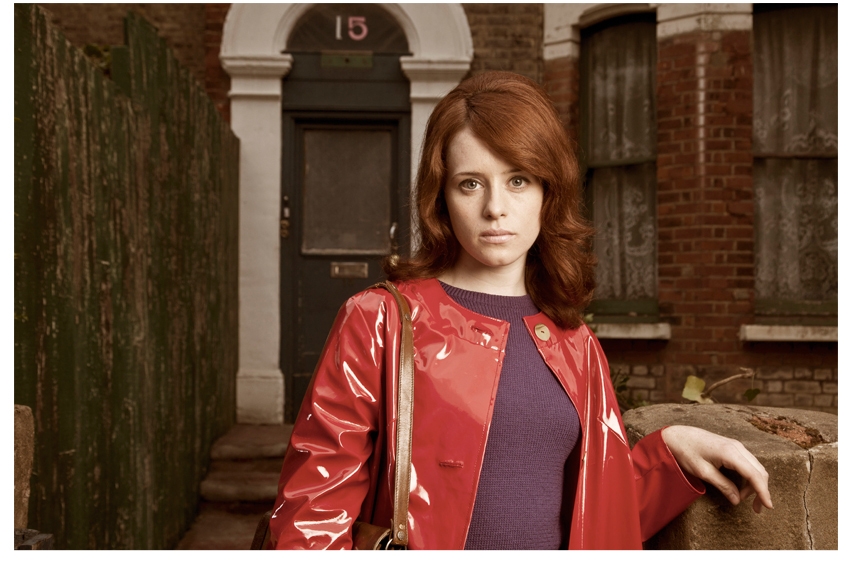Paula Milne’s drama serial White Heat (BBC2, Thursday) starts in 1965 which to some of us might seem like yesterday, but is equidistant between the end of the first world war and now. So to most people it’s ancient history. Various students in London are looking for accommodation, which is strange since Churchill died in January, around the start of their second term.
Doesn’t matter. You take your historical milestones where you find them. The students are selected by their young landlord Jack, a reach-me-down leftie whose father is a wealthy Tory MP. Jack wants them to be part of a socialist commune reflecting all demographics — white, black, gay, working class, and so forth. Jack has the odious arrogance of many public school lefties. You’d think members of his ideal society would want to save time and drink the Kool-Aid now. But they stick it out.
Because it’s 1965, we expect to hear The Who singing ‘My Generation’ at any moment, and 9 mins 05 seconds in we do. Then at 09.57 the first VW microbus drives into shot. At 10.21 we glimpse the Black and White Minstrels on a bakelite television (in those pre-PC days I merely found them wearisome, all dreary songs and synchronised top-hat doffing); at 12.36 someone lights the first joint. Charlotte (above) masturbates in bed, but no need for that much longer — the permissive society has begun! In case we’d forgotten, there’s a scene when a fun-hating GP grudgingly hands one of the girls a prescription for the pill, and Joan Bakewell appears on television, interviewing a feminist. Joan Bakewell! Still with us, campaigning in the House of Lords now, proof that not everyone from the Sixties was a vain, lazy, self-indulgent, self-obsessed slob.
Having somehow avoided mass suicide, most of the flatmates are still alive. We cut to the present day, when one — we’ll learn which at the end — has died, and left their money to the gang. They’re coming back for what I assume will be a Big Chill reunion. One of the now grown women says to her now grown friend, ‘Charlie, there’s not a day when I haven’t regretted what I did to you, not a day,’ so clearly we’re in for torment and betrayal. Also the art teacher is horrid to a pretty girl pupil, so they’re going to have an affair.
There is much box-ticking, some cunningly done, some clunky. Social mobility: the MP tells his resentful son, ‘Balliol would have opened doors for you, as it did for me.’ The end of deference: they dance to pop records while Churchill’s funeral is in the background. Women’s domestic lib: a poster for a steam iron says: ‘Let Hoover free you’. But when Jack gets Charlotte into bed, he is delighted to meet ‘a woman who believes in a bit of uncomplicated sex, without being sucked into that crap about commitment and love’. Well, it never worked for me. Mind you, back in 1965 nothing did.
The question is, are we interested in these folk, or are they just social stereotypes chosen by the author as bloodlessly as Jack picked his flatmates? Are they real people, or just contemporary issues given dialogue? We shall see. At the moment half of them are intriguing, half rather dull.
Two small anachronisms. During the scene in which Jack beds a girl they’ve forgotten that in the 60s lovers always had L-shaped sheets, which covered the man as far as his waist but the woman up to her neck. And at one point, Jack, having got angry, says, ‘Sorry, I lost the plot.’ I don’t think people used that phrase. But I will now get letters from readers who tell me that it’s in Trollope, when the Prebendary of St Balustrade says, ‘My lord Bishop, I fear I have lost the plot,’ even if it’s clear that he means notes for his new novel, or else a vegetable garden. Why go to all the trouble of having accurate cars and even milk bottles, if you don’t get the language right? I could put up with them having iPhones if they talked 1965.
Pointless (BBC1, daily) is a very successful and appealing quiz show, in which contestants have to pick the correct answer chosen by the smallest number of people in a poll. It works because Alexander Armstrong is a warm and friendly host who doesn’t condescend, and because Richard Osman, whose company makes the programme, has a bone-dry wit as the nerd with all the answers.
So naturally the BBC has come up with a celebrity version for Saturday nights. It’s ten minutes longer than the daily one, so that the slebs can show off at tedious length. It has now lost much of its charm.





Comments